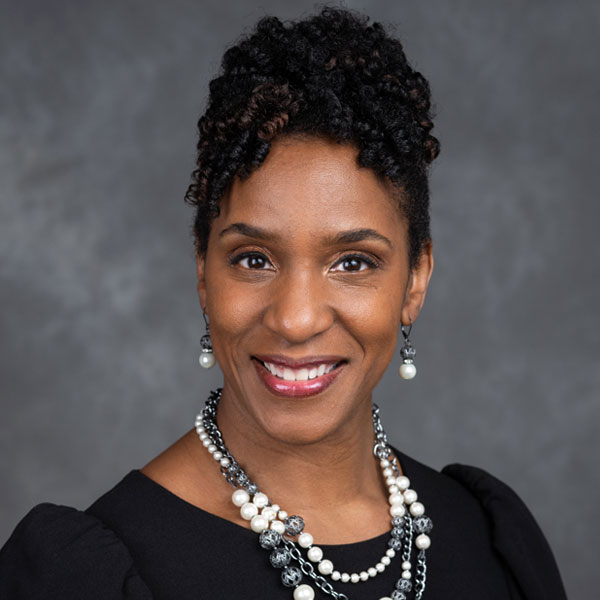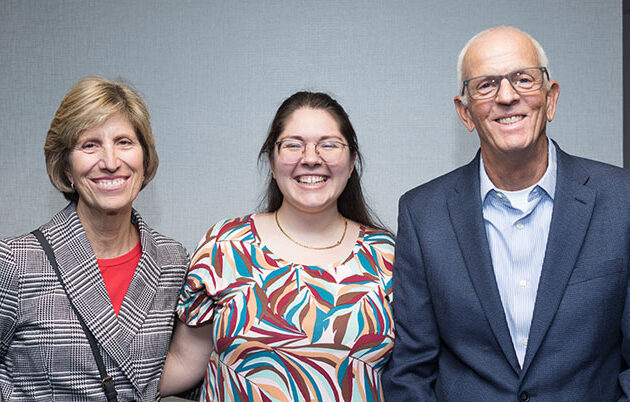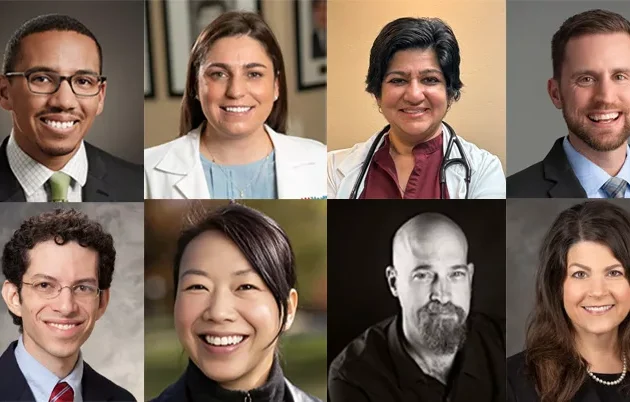A professor in the Department of Medicine at the University of Wisconsin School of Medicine and Public Health, chair of the UW–Madison Institute for Diversity Science, and a vocational psychologist, Byars-Winston has followed her own advice. Nationally recognized for her research on the impact of cultural influences on academic and career development — especially for women and individuals from underrepresented racial and ethnic groups in the science, technology, engineering, math, and medicine (STEMM) fields — Byars-Winston has a record of growing where she is planted.
The California native earned her bachelor’s degree in psychology and a master’s degree in counselor education from San Diego State University (SDSU), which she chose primarily for its affordability. About her time there, Byars-Winston reflects, “It made me who I am. I couldn’t have imagined how that place and the experiences I had there would launch my sense of myself as a scientist, as a leader.”
Next, she completed a predoctoral clinical fellowship at the University of Maryland and a doctoral degree in counseling psychology from Arizona State University, where she was one of only two Black doctoral students in the Department of Education. It was there that a trusted mentor “who saw a bigger vision of me than I had of myself” encouraged her to pursue research.
“I was being trained as both a therapist and a researcher, and my mentor saw my eyes light up more when I talked about my research,” she recalls. “I loved both fields, but I really love data. I love numbers. I love asking questions and finding out what drives people.”
In 1997, Byars-Winston became a counseling psychologist in the UW–Madison Department of Education. In 2011, she joined the School of Medicine and Public Health’s Department of Medicine faculty, and six years later, she became the first Black tenured full professor in that department.
“I came to focus on the science of mentorship because I first started asking, ‘Why does underrepresentation continue, despite $10 billion a year of governmental investment?’ For example, we actually have fewer women in computer science now than we did in the 1960s, and we have about the same number of Black men going into academic medicine as we did in the 1970s,” Byars-Winston notes.
“When I spoke to underrepresented students, they talked about the environment, culture shock, and the difficulty in being the ‘lonely only’ at universities that are predominantly white spaces,” she continues. “This led me to focus on another thing they talked about, which is that it really helps if they have a mentor who understands their experience.”
Byars-Winston’s research includes serving as principal investigator for a National Institutes of Health R01 grant to study research training interventions for mentors of ethnically diverse mentees in biological science and co-leading another R01 grant to investigate and intervene on research mentors’ cultural diversity awareness. She chaired the consensus study on the Science of Effective Mentorship in STEMM, published in 2019 by the National Academies of Sciences, Engineering, and Medicine.
In addition to her other roles at UW–Madison, Byars-Winston is the associate director of the Collaborative Center for Health Equity and the faculty leader of the Center for the Improvement of Mentored Experience in Research. Beyond campus, she is a member of the National Institute of General Medical Sciences Advisory Council and a principal investigator in the National Research Mentoring Network, which leads culturally responsive mentorship efforts.
Byars-Winston’s work has drawn numerous accolades. Notably, in 2011, she was named a Champion of Change by President Barack Obama. She received the Outstanding Woman of Color Award from UW–Madison, the Clinical and Translational Research Distinguished Educator Award: Mentorship Innovation from the Association for Clinical and Translational Research, and the Alumni Award of Distinction from SDSU.
She continues to ask questions and seek solutions, in part, for her two daughters, who are in high school and college.
“I have a young Black daughter who’s an environmental science major, and I want the world to see her for her science and for who she is, including the cultural identities that matter for her. That keeps me going,” Byars-Winston shares. “It’s important to me to constantly be dreaming about the next ways we can advance a more socially just and racially equitable society, and to keep thinking about the next role I can play to make that happen.”


